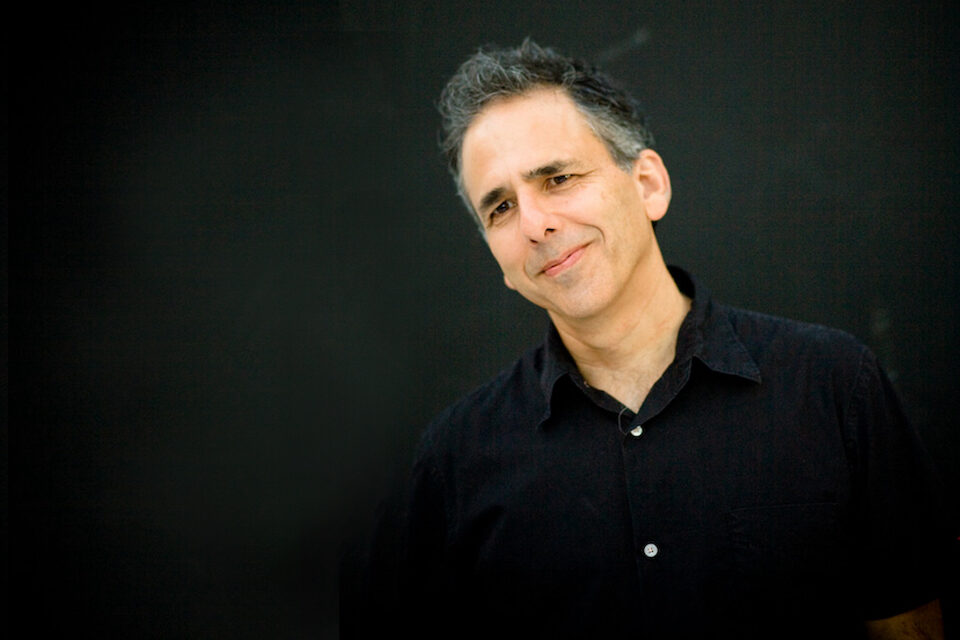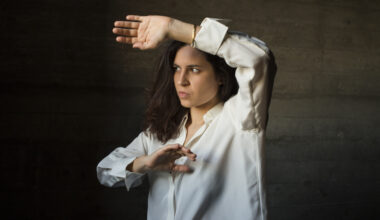Michael Gordon’s music merges subtle rhythmic invention with incredible power embodying, in the words of The New Yorker‘s Alex Ross, “the fury of punk rock, the nervous brilliance of free jazz and the intransigence of classical modernism.”
Over the past 30 years, Gordon has produced a strikingly diverse body of work, ranging from large-scale pieces for high-energy ensembles to major orchestral commissions to works conceived specifically for the recording studio. Transcending categorization, this music represents the collision of mysterious introspection and brutal directness.
Born in Miami Beach in 1956, Gordon holds a Bachelor of Arts from New York University and a Masters of Music from the Yale School of Music. He is co-founder and co-artistic director of New York’s legendary music collective Bang on a Can.
Michael Gordon is part of this years Maerz Musik 2021. He will perfom as part of Bang on a Can (21.03) and TIMEPIECE (27.-28.03).
FACTS:
1: Scientists say that the amount of H2O, water, on the planet Earth does not increase or decrease, it just cycles around. I love thinking about this because it’s a metaphor for the exchange of energy, of emotions, maybe of life cycles and souls.
2: TBA
3: TBA
QUESTIONS:
1. What is the biggest inspiration for your music?
I’m in a great musical community in New York with my composer colleagues Julia Wolfe and David Lang and the fantastic musicians in the Bang on a Can All-Stars and the team that makes it all happen. I am writing, recording, playing, talking, listening, touring and live-streaming music, and the creative musical world just keeps getting bigger and better. Because we get to create and also present and commission composers and ensembles, I feel like we are working to change the musical art scene in New York and wherever we go. Artists have power. So many ideas that move the world forward have their origin in some form of art. The world needs dreamers, not just material product. So I am here to dream and to share the dreams.
2. How and when did you get into making music?
I spent my early childhood in Nicaragua and I started playing the piano there. My mother, Madeline, loved music. We had a record player and listening to records was a favorite activity. I was 8 when we moved to Miami and I continued playing classical piano and I also started playing in bands. On weekends I would go with my friends and play at the hotels by the pool. My mother belonged to a record club and by accident she checked the wrong box and got a record of modernist contemporary classical that she gave to me. “I don’t know what this is,” she told me. I didn’t know either, but I listened to it 100s of times. Then I started buying more records.
3. What are 5 of your favourite albums of all time?
JS Bach: Well Tempered Clavier – Glenn Gould
Steve Reich: Music for 18 Musicians
Meredith Monk: Dolmen Music
Glenn Branca: Symphony #6
David Lang: Little Match Girl Passion
4. What do you associate with Berlin?
I first came to Berlin in 1987 at the invitation of Freunde Guter Musik. I was playing in performance spaces in Holland and Belgium and the last gig was in Berlin. Our train was delayed and we came just before the concert. It was a blast. The show was sold out and I thought, Berlin! I have friends here now so it’s a friendly place to me, and I feel right at home, because the energy is a lot like New York.
5. What’s your favourite place in your town?
The water. In New York there’s water everywhere, and walking along the water is relaxing and expansive. And I have a dog so I am walking my dog, @river_gordon, all the time. It’s great in New York to have a dog because otherwise I would stay inside for days.
6. If there was no music in the world, what would you do instead?
Play chess.
7. What was the last record/music you bought?
I heard Johnny Gandelsman, the violinist in Brooklyn Ryder, played all the Bach solo violin sonatas and partitas. I bought the recording back stage from him after the show.
8. Who would you most like to collaborate with?
Anne Teresa De Keersmaeker
9. What was your best gig (as performer or spectator)?
Maybe the most spectacular event I’ve been involved in was the premiere of Natural History, a piece I wrote in collaboration with the Steiger Butte Drum of Oregon, an extended family of Native American drummers and singers from the Klamath Tribe. I wrote for orchestra, chorus and 30 spatially placed brass and percussionists, and the Drum was right in the middle of it all, like the soloist in a concerto. We played the first performance outside at the rim of Crater Lake, one of the wonders of the world. There was a 2000 foot drop at the edge, and about 120 musicians, all overlooking one of the most beautiful calderas on the planet.
10. How important is technology to your creative process?
I gave up working at a musical instrument decades ago. I found that, for me, I was thinking too much about what my fingers could do and couldn’t do. I went cold turkey and stopped playing the piano. I write music using notation software on a Mac. I also use electronics, amplification, and recordings of sounds we find in our daily life. It’s pretty important, but if it all crashed, I could go back to the piano.
11. Do you have siblings and how do they feel about your career/art?
I have sisters and they are terrific. Through the circumstances of modern life, I grew up with one of my sisters and not with the other. Jeannie is very involved in my musical life and is always at concerts. When I was growing up and before I could drive, Jeannie would take me to Coral Gables to the only record store in Miami that carried classical. Sarita grew up in Nicaragua, but when my family moved to Miami she moved to Costa Rica to study at the University. Sarita has spent her whole life there so we get to share music and family things when we see each other, but it’s not around the corner.
Photo © Peter Serling


